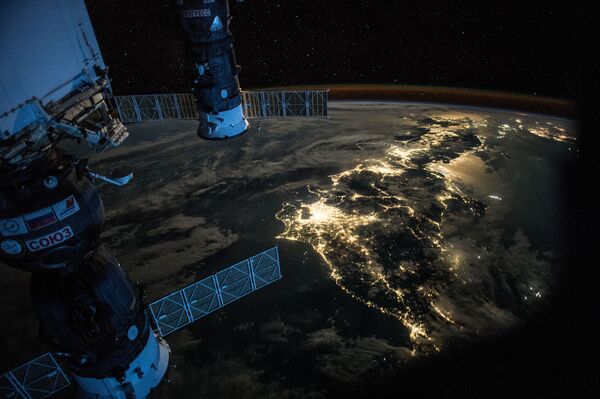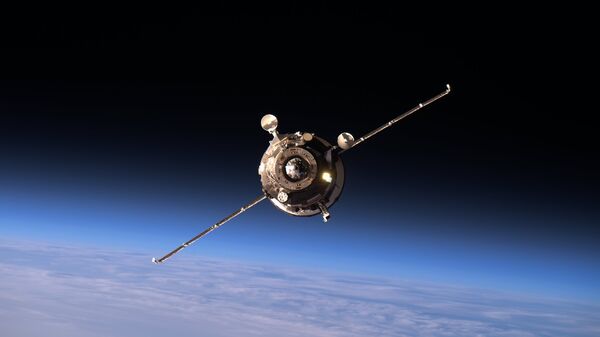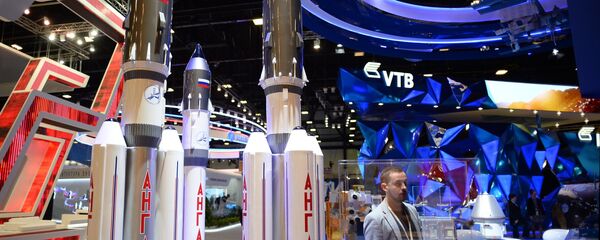According to a press release published by the company on Monday, Energia plans to complete the preliminary design phase of the new spacecraft, featuring increased payload capacity for transport and logistics to the ISS, by the end of 2016.
The company estimates that three launches using the new ship will allow it to deliver the same amount of cargo as four launches using the existing Progress MS vessels.
According to the company, the timeframe for the creation of the new ship has been significantly reduced by taking elements from the existing Progress MS and Progress M-UM designs, including onboard systems and design elements.
The expected layout of the new cargo vehicle's passenger compartment will allow it to accommodate goods with larger dimensions, and is meant to simplify the work of loading and unloading the spaceship.
The Progress series of expendable cargo spacecraft was first designed in the Soviet period to supply the experimental Salyut 6 space station in the 1970s. Since then, Russian engineers have made repeated modifications and upgrades to the vessels, culminating in the Progress MS-02, first launched in late 2015. The vehicle's design was marked by a significant improvement over the M1 and M2 series, featuring improved survivability, upgraded satellite linkup capabilities and the associated navigation capabilities, and an external compartment allowing the vehicle to independently deploy satellites.

After the grounding of the American Space Shuttle fleet, the Progress series temporarily became the only vessel available to transport large quantities of supplies to the ISS. Since then, European and American space agencies have adopted their own designs, including the SpaceX Dragon craft.




